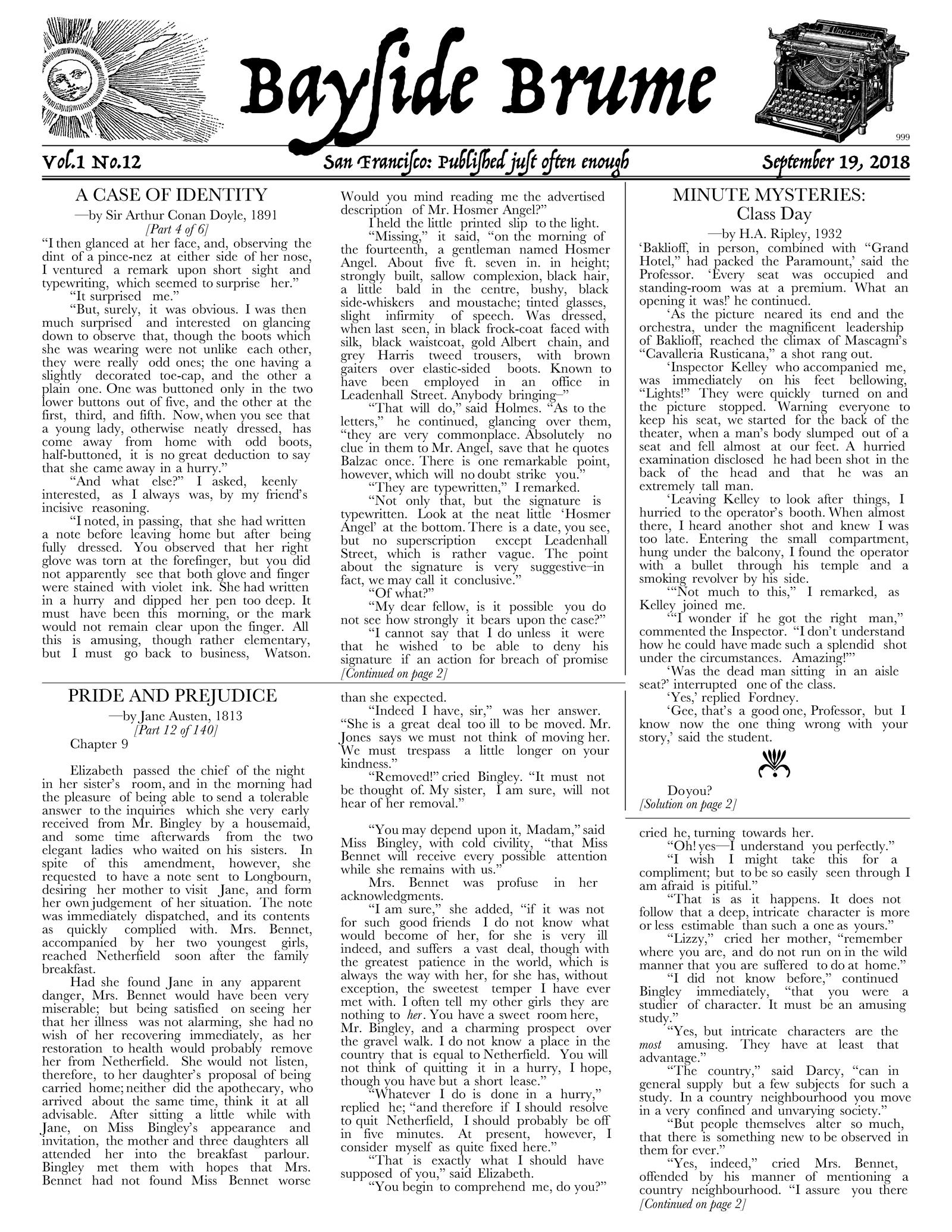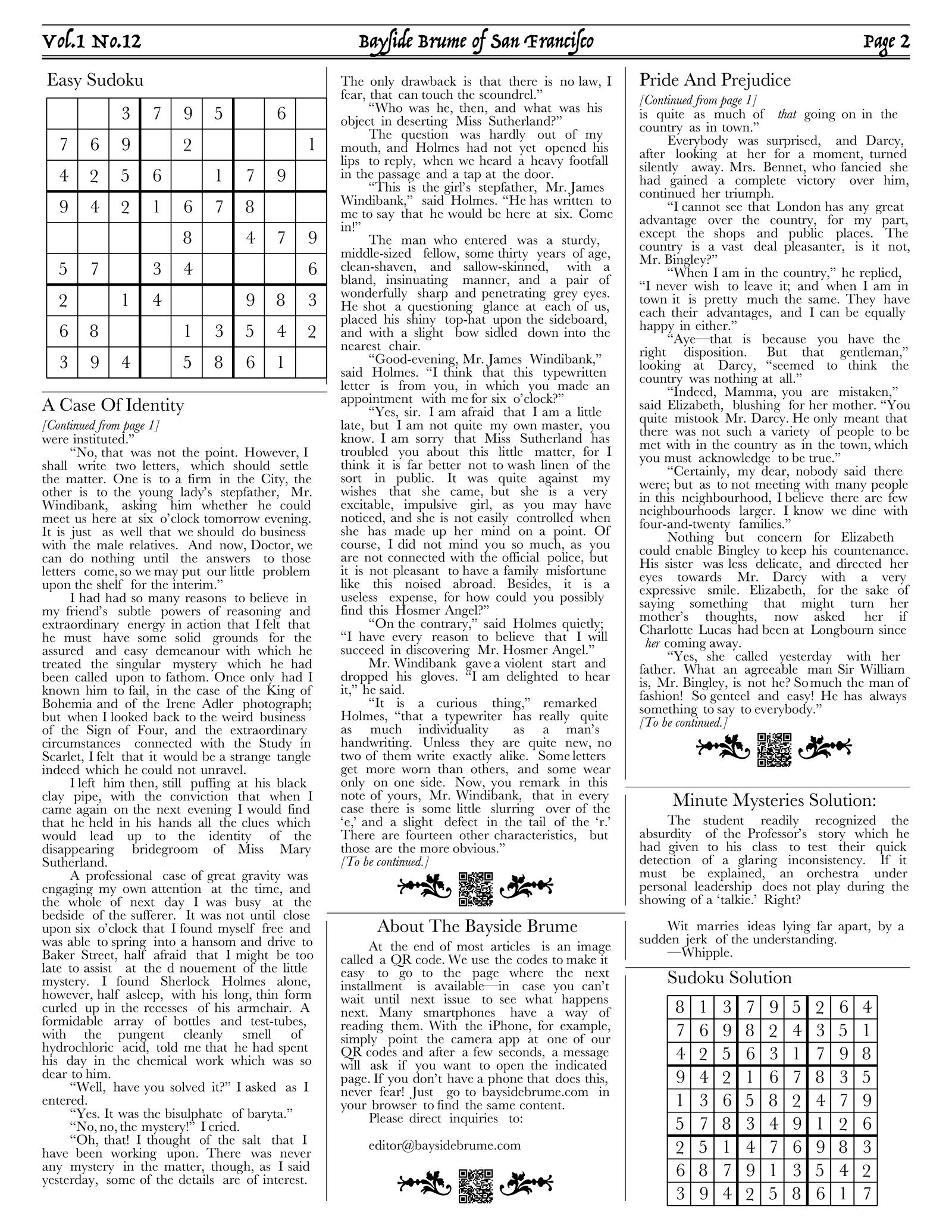Bayside Brume
Bayside Brume was a one-sheet/two-page literary digest that was meant to be picked up and read while waiting in line at one’s local coffee shop. Behind it is a fairly complex program written in Python that generates PostScript documents that are saved as PDFs, and that a cafe can print and have on hand for its customers. The content is drawn mostly from Project Gutenberg sources.

The basic process is to create a data file in which horizontal dividers in each column of each page are specified, thus defining blocks in each of those columns. Next, in the same data file, the part of a given work appearing in the issue at hand is specified so that it can be flowed into an also specified set of the aforementioned blocks. In addition, a new sudoku puzzle and its answer are generated for inclusion. Finally, the issue is saved as a PDF.
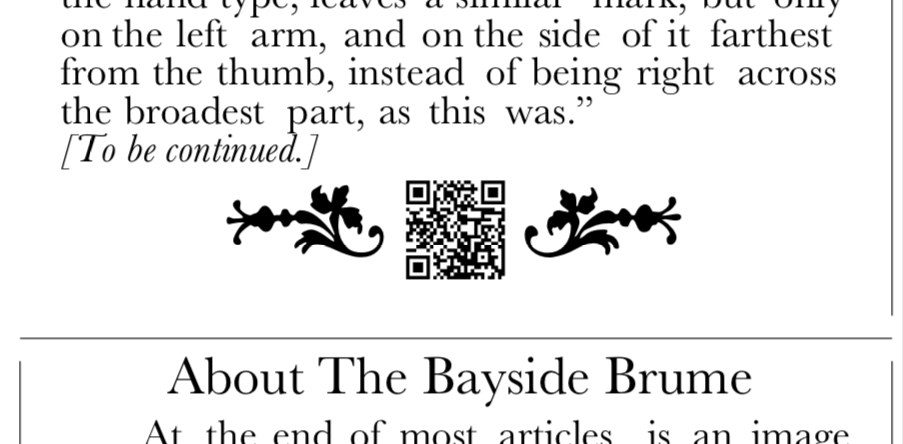
QR codes at the end of each section (which no longer work since the website is gone) linked the reader to the complete version of the work presented in each issue. So, for example, if an issue one picked up included part seven of Pride & Prejudice, and one got hooked and wanted to continue reading beyond what was presented, all one would have to do to see the rest of the novel is to read the QR code with their mobile phone. This would link to the page in the Bayside Brume website where the complete novel (or short story as the case may be) could be found.
I’ve written several utilities, also in Python, to help with preparing the source materials. Nevertheless, the process is fairly time-intensive in that only a limited amount of space is available in each issue and balancing the lengths of all works included in an issue can be tricky when natural breaks in the texts are desired.
The name originated from “Bayside” for San Francisco Bay and “Brume”, meaning “fog.”
Volume 1, Issue 1
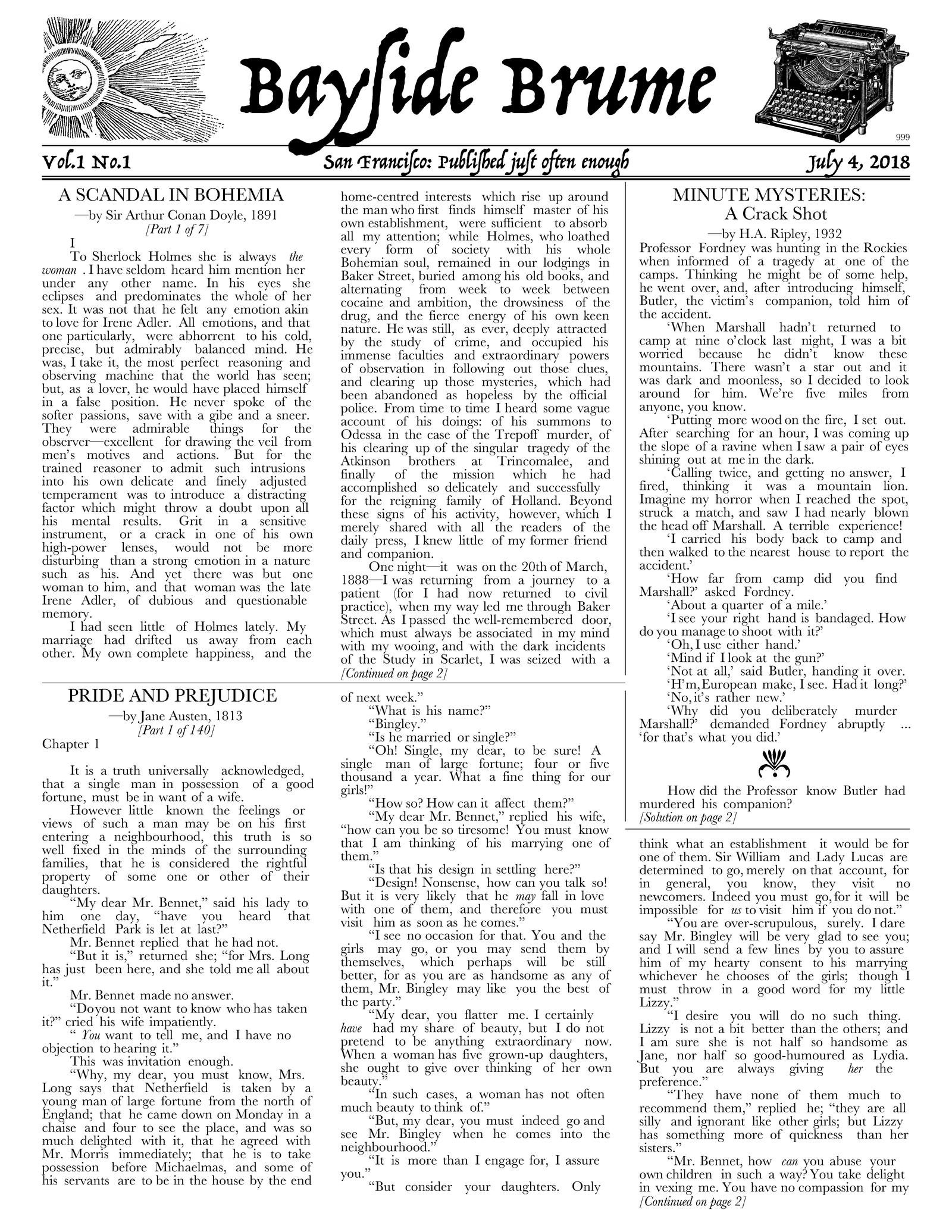
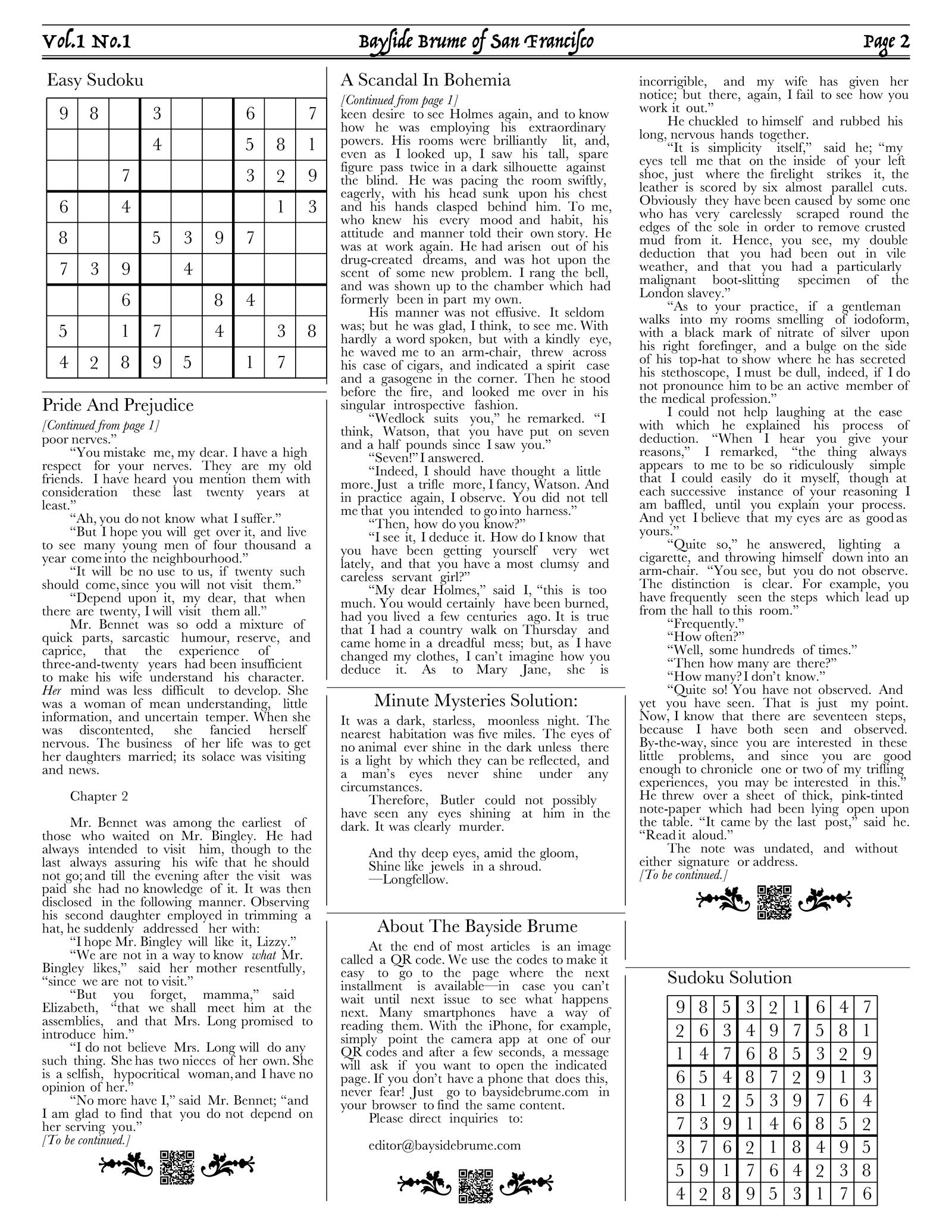
Volume 1, Issue 12
